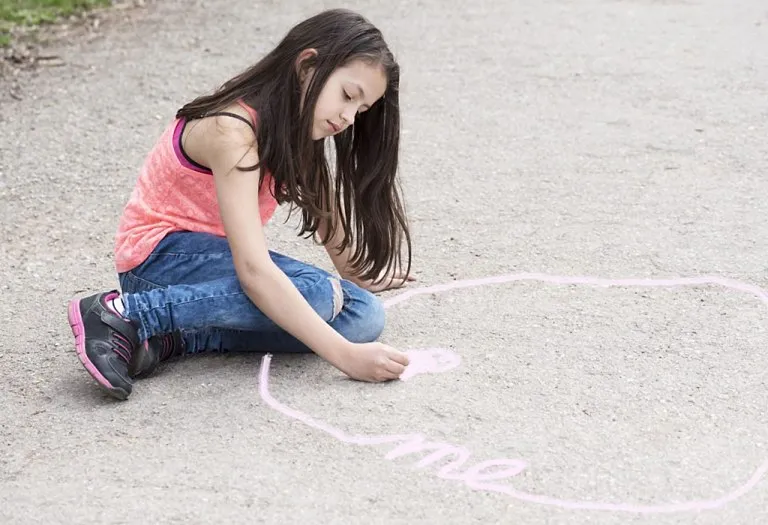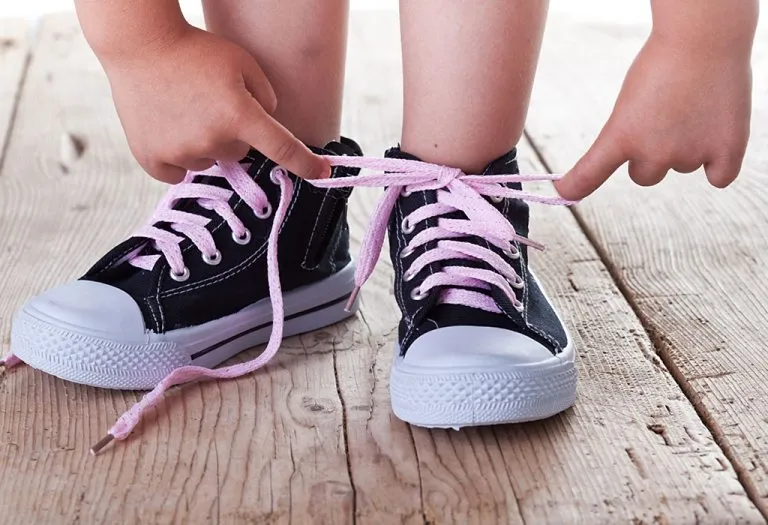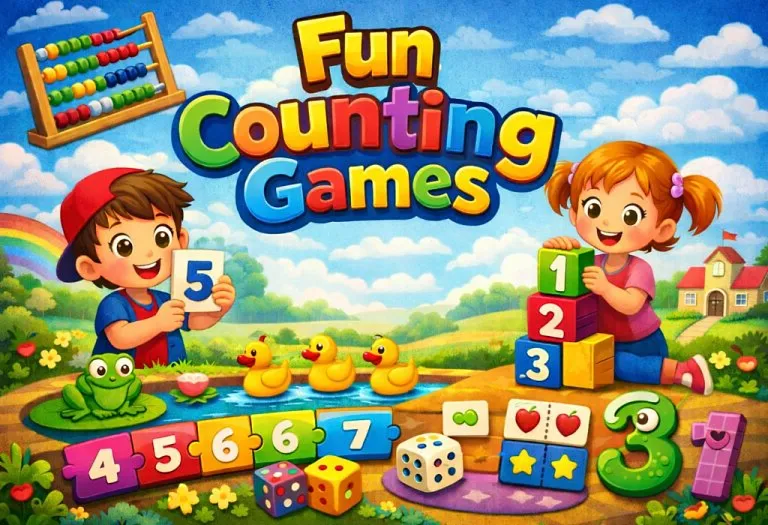Important Character Traits for Kids and How to Teach Them
- Why Is It Important to Teach Character Traits to Kids?
- What Are the Basic Character Traits That a Child Should Possess?
- How to Teach Character Traits to Kids
- Character Building Activities for Kids
- What Are Some Negative Character Traits?
- FAQs
Character traits are defined as values a person believes in and reflects in his personality. These character traits determine the person’s actions, behaviours, and decisions in everyday life. A child needs to develop positive traits from an early age. Parents want the best for their kids. But if you really want your child to succeed in life, you should invest your time in nurturing the best character traits in your child. Developing character traits in children at a young age is crucial because kids are quick learners. The values they learn at an early age will stay with them and continue to help them for the rest of their lives.
Why Is It Important to Teach Character Traits to Kids?
Character traits are essential for a being to grow positively as an individual and as a society. The positive character traits for kids help children understand success and failure along the way and learn from life experiences and mistakes. This ensures a person grows holistically, learns to distinguish between right and wrong, and taps their hidden potential.
Let’s quickly check the character traits list for kids without wasting any single second.
What Are the Basic Character Traits That a Child Should Possess?
Developing positive traits is arguably as important as academic learning for a child’s all-around education. The character traits will help the child succeed in every aspect of his life. Many of these traits will serve them later in their life in achieving both personal and professional growth. Here is a list of character traits a child needs to develop from an early age:
1. Curiosity
Curiosity has been the underlying cause of many successful discoveries and inventions. The nature to seek answers makes things interesting and results in active thinking. It is thus important to keep your kid’s curiosity alive. You can encourage this by teaching them new things and taking them to new places and asking them questions.
2. Resilience
Parents often try to shield their kids from stress and pain, but it is important for kids to be resilient to be able to deal with pain and traumas. The children should know how to deal with difficulties rather than running away from them.
3. Creativity
In addition to the academic curriculum, children should be encouraged to take time for creative activities like photography, music, dance, pottery, etc. This will not only help your child develop communication skills but also their problem-solving ability.
4. Empathy
It is the duty of parents to inculcate a natural sense of empathy in the child and to stress the importance of caring for others. This will not only be good for the community but also help the child develop emotional intelligence.
5. Confidence
How a child feels about himself will have an impact on how he acts. Positive self-esteem has a strong impact on behaviour and happiness. It is imperative for parents to praise their child realistically and reward positive behaviours, as focusing only on behaviour will lower their confidence.
6. Patience
In today’s fast-paced world, children often lack patience as a character trait. The ability to delay gratification and wait for the right time is a quality every child should have.
7. Honesty
Teaching your child to be honest and truthful to self and to others, even in the most difficult situations, is what makes them a reliable individual. Dishonesty comes from the fear of consequences, and children should learn to face the consequences of their actions.
8. Courage
Being courageous is being brave about something you fear. Children should be able to come out of their comfort zones and have the courage to do something they are afraid of.
9. Adaptability
Rigidity often comes in the way of growth and progress. An adaptable child can easily adjust to changes and new situations. Children with high adaptability are often flexible and team players.
10. Optimism
Optimism focuses on developing a positive attitude in the face of a difficult situation and goes a long way in taking a person to their success. Optimistic children are willing to face challenges, create strong relationships and take failure as a learning opportunity.
11. Gratitude
Nurturing gratitude in children will help them live happy and fulfilling lives. Teaching children the virtue of gratitude also increases their creativity and productivity and is the key to being happy and thankful.
12. Proactive
Proactive children recognize and do what needs to be done before they are even asked to do. Helping children master this trait will help them set goals, take initiative, and inculcate leadership skills.
13. Serenity
Teaching your child to remain calm under pressure and in tough situations is extremely important. This helps children act strongly and calmly during challenges and prevents them from taking impulsive actions.
14. Respect
To be respectful is being considerate and honouring the feelings and opinions of others or disagreeing with someone without talking them down. Children learn respect from how their parents treat them and others and learn to respect themselves and those around them.
15. Endurance
Children need to have endurance in today’s competitive world. It is important for children to have the inner strength to withstand pressure and perform their best. Endurance as a trait helps children face competitive pressure without losing their balance.
How to Teach Character Traits to Kids

Developing positive character traits in children is important for their overall growth and success. If parents want their child to grow up with good values and character traits, it is upon them to instil these traits in their child. Teaching these traits may be difficult but with the right approach, children will develop the traits and continue to learn more.
Become a Role Model Yourself
The best way to teach your child is by setting good examples yourself (1). So, parents should try to be:
1. Confident
Try to be confident in your actions as well as those of your kids.
2. Forgiving
Always forgive the offenders and preach kindness.
3. Encouraging
Try to speak uplifting words that encourage others and your child, too.
4. Honesty
Stay truthful and set examples by eliminating lies from your life. Even a white lie is unwelcome.
Set Positive Examples
You can set positive examples to teach your child how to behave in a certain situation.
- If your child lies, explain how this affects him and encourage him to tell the truth.
- When your child steals, explain to him that this is not the right way to get something and help him return the item back to its owner.
- If you see your child disrespecting others, explain to him that he can disagree with someone politely. Your child should understand that being rude or disrespecting others is not a way to show dissent.
Tell Stories
- Share experiences from your childhood about different character traits and how to develop them.
- Share some stories where you made mistakes and the consequences of it or how you corrected your fault.
- Choose bedtime stories with morals and let your child learn while having fun.
Character Building Activities for Kids
Teaching children values is one of the most important duties as a parent. Here, we have some character-building activities that you can do with them to teach them empathy, kindness, honesty, and respect.
1. Treating Others With Kindness
You can teach compassion to your child by showing kindness to others and by treating others with respect.
2. Learn From Past Experiences
Try this character-building activity by sharing some personal stories with your child and helping them draw morals and conclusions from those stories.
3. Expose Your Child to the Outside World
Expose your child to other ways of life by taking him to tour libraries and museums to explore cultural materials and expand his horizons.
4. Words Power
You can try making a painting or collage about a single trait with images that depict what the trait signifies. You can also try story writing to relate to different character traits that your child understands.
5. Character Journaling
You can keep track of your experiences and the activities you tried in a character-building journal. A journal may help your child to reflect on the traits he learns or to examine situations where he may have acted out.
What Are Some Negative Character Traits?
These are some negative character traits kindergarten children should not develop:
- Arrogance
- Short temper
- Careless
- Dishonest
- Mean
- Materialistic
- Obsessive
- Prejudice
- Rude
- Stubborn
- Ungrateful
FAQs
1. What activities can help a child become creative?
Activities like painting, sketching, playing instruments, imaginative play, and innovating with toys like Lego can help children be creative.
2. What kind of stories are ideal for teaching positive traits to children?
Stories with protagonists learning a life lesson, rich in narrative and perspective, can help build positive traits in children.
3. How can I make my child refrain or let go of certain negative character traits like lying, bullying, cheating, and cursing?
Role play and activities teaching empathy, and volunteering work are some great activities for helping children let go of negative traits like cheating, cursing, and lying.
4. Can technology be used for learning character traits?
Why not! Children-specific online learning games, digital books, self-building programmes and shows are great for teaching children positive traits.
It is imperative in today’s world that parents develop positive character traits in children to help them grow in every aspect of their life. Developing these traits is equally important as performing well academically. Parents should therefore teach lessons of values and morality at home for the overall development of their children.
References/Resources:
1. How to Develop Positive Character Traits at School and Home; Ripple Kindness Project; https://ripplekindness.org/teaching-character-traits-at-home-and-in-the-classroom/
Also Read:
Essential Life Lessons for Kids
How to Teach a Child to Share
Positive Discipline Techniques
How to Make Children Listen to You
How to Teach Discipline to Your Kid
How to Teach Your Child to Behave Well
Was This Article Helpful?
Parenting is a huge responsibility, for you as a caregiver, but also for us as a parenting content platform. We understand that and take our responsibility of creating credible content seriously. FirstCry Parenting articles are written and published only after extensive research using factually sound references to deliver quality content that is accurate, validated by experts, and completely reliable. To understand how we go about creating content that is credible, read our editorial policy here.























